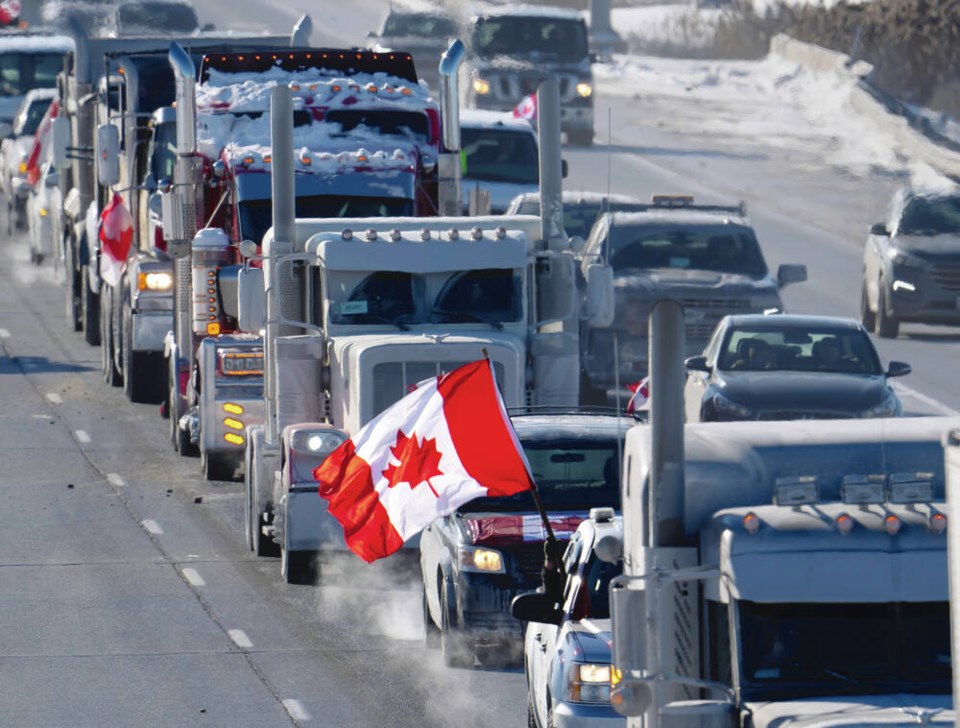The commission to determine if the federal government properly invoked the Emergencies Act has issued its ruling.
Justice Paul Rouleau has concluded that Prime Minister Justin Trudeau’s government behaved appropriately by invoking the act to quell the trucker protest in Ottawa last year. It was the first time in the 34-year life of the statute that it has been called into play.
There are arguments on both sides of this issue, but on its face, Rouleau’s decision is surprising.
The language of the act is clear. It may be invoked only if a situation arises which poses “a threat to the security of Canada,” and which “cannot be effectively dealt with under any other law in Canada.”
Neither of these tests was unambiguously met. As to the first, the trucking protest in downtown Ottawa, while clearly distressing to residents and in every respect obnoxious, came nowhere near creating a threat to national security.
The statute, and its predecessor the War Measures Act, was written with far more pressing matters in mind, such as the October crisis in Quebec when insurrectionists literally attempted to pull the country apart.
But it was in failing to meet the second test — the absence of “any other law” to deal with the protest — that Rouleau does a disservice to our nation’s wellbeing.
There were indeed other laws through which the protests could, and should, have been dealt with. Indeed, Rouleau in effect concedes this.
The substance of his complaint is that the several police forces involved failed to apply the authority they already had in a concerted and functional manner.
As testimony before the commission showed, the Ottawa Police Service, the local RCMP detachment and the Ontario Provincial Police Service collectively bungled the job. They fought amongst each other, obstructed attempts at co-operation and failed to present a coherent plan for dealing with the protest.
There were also disputes about available resources. When the RCMP claimed they had “sent over three shifts of 70 each,” the chief of staff to Ottawa’s mayor accused them of “flat-out lying.”
This wasn’t a case of under-empowered police departments lacking the necessary tools for the job and requiring the addition of emergency powers. They had the tools, and visibly failed to use them.
For this goes to the heart of the matter.
The overlying breakdown here was the unwillingness of the federal government and the Ontario provincial administration to bring their delinquent law enforcement agencies to heel.
The prime minister waffled when asked to assist. Ontario Premier Doug Ford explicitly refused to step in, insisting that politicians shouldn’t interfere in day-to-day police work.
But while politicians should indeed remain on the sidelines on a day-to-day basis, they have no excuse for washing their hands when police forces themselves fall into disorder.
It is their duty in such cases to step up. Rouleau, while critical of these sidesteps by our political leaders, in effect lets them off the hook.
There was, in short, no need to invoke the Emergencies Act. What was required was firm and effective guidance from above, if need be by removing incompetent or recalcitrant police chiefs.
Instead, the precedent has been set that our country’s politicians can evade the admittedly messy business of policing the police. Instead, they may resort to the far more radical practice of invoking emergency powers and suspending basic civil rights.
It is for this reason that we conclude Rouleau has done a disservice to our nation’s well-being.



